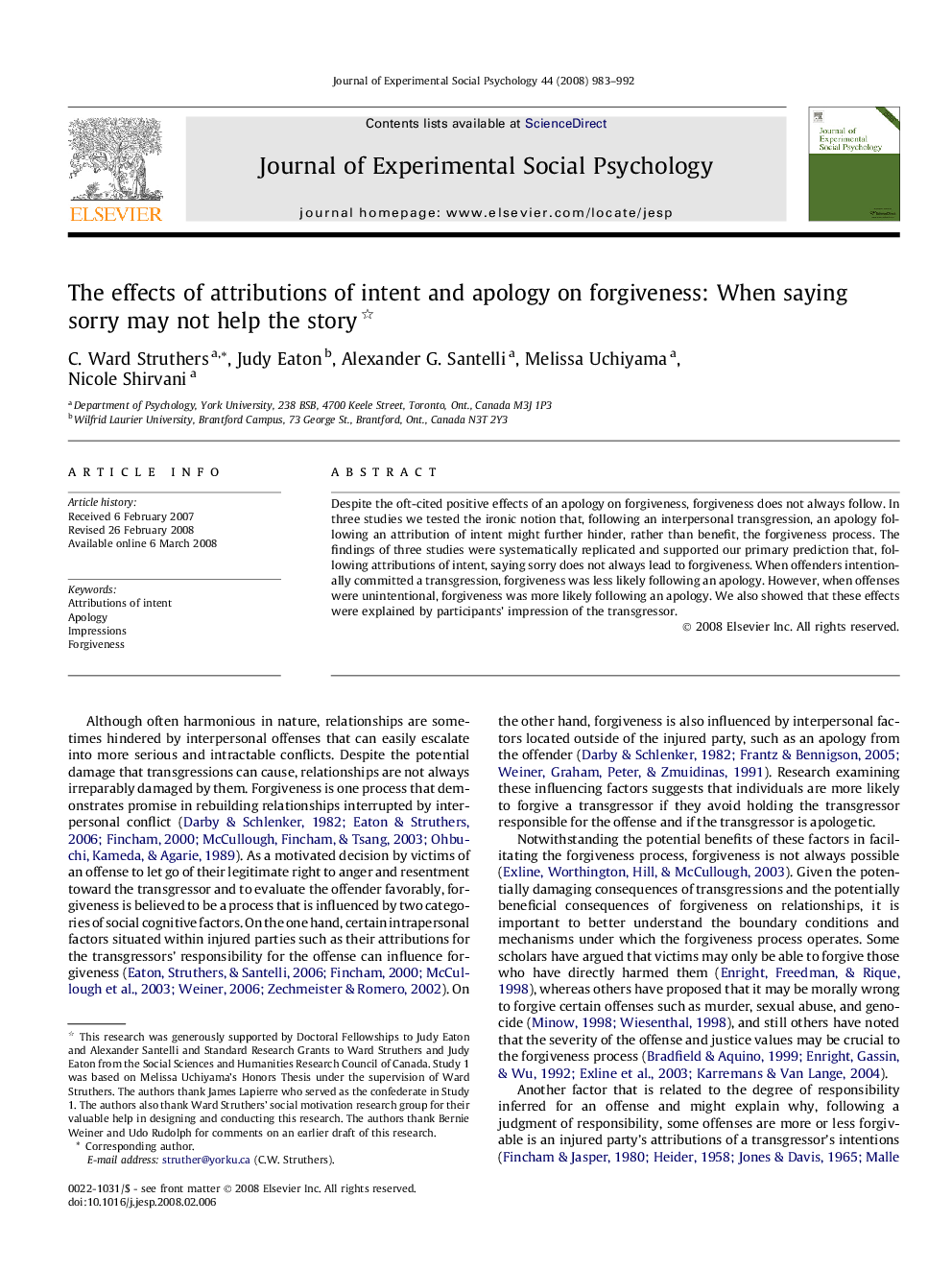| Article ID | Journal | Published Year | Pages | File Type |
|---|---|---|---|---|
| 10468612 | Journal of Experimental Social Psychology | 2008 | 10 Pages |
Abstract
Despite the oft-cited positive effects of an apology on forgiveness, forgiveness does not always follow. In three studies we tested the ironic notion that, following an interpersonal transgression, an apology following an attribution of intent might further hinder, rather than benefit, the forgiveness process. The findings of three studies were systematically replicated and supported our primary prediction that, following attributions of intent, saying sorry does not always lead to forgiveness. When offenders intentionally committed a transgression, forgiveness was less likely following an apology. However, when offenses were unintentional, forgiveness was more likely following an apology. We also showed that these effects were explained by participants' impression of the transgressor.
Keywords
Related Topics
Life Sciences
Neuroscience
Behavioral Neuroscience
Authors
C. Ward Struthers, Judy Eaton, Alexander G. Santelli, Melissa Uchiyama, Nicole Shirvani,
